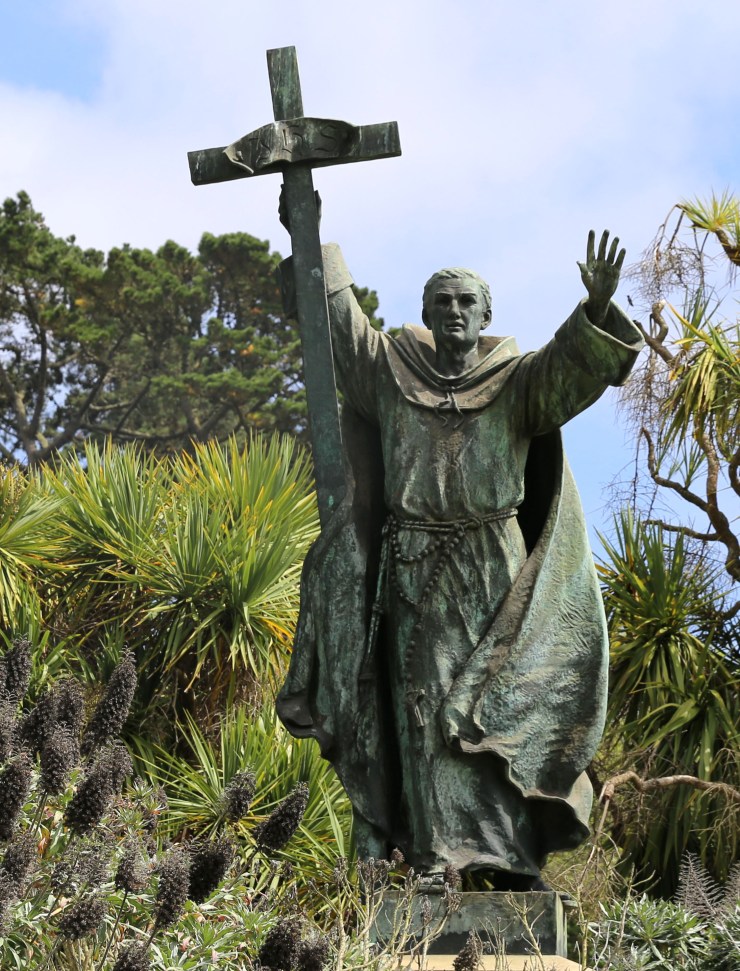What Happens After All The Statues Come Down? The Chavez-ification Of America
By I&I Editorial
IssuesInsights.com

The recent spate of statue toppling is not just vandalism of the rabble gone wild. It’s more than that, much more.
So far in this current cycle, the statues of Confederates, Christopher Columbus, George Washington, a Spanish missionary, U.S. Grant, a Texas Ranger, and an Oregon pioneer, to name a few, have either been torn down by mobs or removed by officials who have surrendered to the swarming Woke activists. It’s not easy to decide who is more contemptible, the thugs pulling down the memorials or the authorities who are allowing the crimes to occur.
Either way, the rampaging is more than a matter of aesthetics and a breach of polite behavior, with supposedly civilized Americans conducting themselves like savages. The dangers are ultimately existential. As Ed Driscoll blogged Tuesday on Instapundit, “as with all previous revolutions, eliminating statues of dead people is merely the precursor to eliminating living people deemed by the left to be, as Hillary would say, ‘deplorable.’”
Last week, Hoover Institution scholar, professor, farmer, and columnist Victor Davis Hanson told Fox News the vandals are “very arrogant. They’re sure of their moral superiority because they’re ignorant and they have no self-doubt.” It’s “true of most revolutionaries,” he continued, “they have no self-doubt and they become cannibalistic in their zeal for perfection, perfection, perfection.”
Monday, Hanson was on Fox again, telling host Tucker Carlson that the destruction is “not about the icon on the statue, it’s about humiliation and power.” Hanson, who is also a classicist and military historian, has been warning us for years about the hazards of sitting idle while history is erased.
“Cleansing the past is a dangerous business,” he wrote in 2017. The progressive left “search for more enemies of the past may soon take progressives down hypocritical pathways they would prefer not to walk.”
Elizabeth Rogliani, a Venezuelan actress living in this country, tells us exactly what that path looks like.
I have already lived through this thing when I was living in Venezuela. Statues came down, (Hugo) Chavez didn’t want the history displayed. Then he changed the street names, then came the curriculum, then some movies couldn’t be shown on certain TV channels.
You guys think it can’t happen to you. I’ve heard this so many times. But always be on guard, never believe that something can’t happen to you. You need to guard your country and your society or it will be destroyed. … And there’s clearly a lot of people wanting to destroy the U.S.
For those with short memories, Chavez is the Castro-ite revolutionary who was elected Venezuelan president in 1998. He eventually became a dictator, surviving a 2002 coup. While in power, he drove what at one time was the richest country in South America into an economic abyss. The oil-rich nation now has the 75th largest economy in the world and ranks only seventh in Latin America, and falling fast
The crash has been continued by Nicolas Maduro, another revolutionary who succeeded Chavez upon his 2013 death. Venezuela is wracked by shortages, stratospheric inflation, and soaring crime. It has, reports the British Independent, “collapse(d) into authoritarianism.”
“Power grabs, most recently to replace the constitution, have led to protests and crackdowns that have killed dozens just this month,” it reported in May 2017, because (our words) poor Venezuelans’ lives matter.
And all of it was done in the name of freeing an oppressed people through the “widespread nationalization of private industry, currency and price controls,” as well as “the fiscally irresponsible expansion of welfare programs.” It was these Chavez policies, says Venezuela expatriate Daniel Di Martino, “that produced the current crisis.”
Much of the country is sickened by what it’s seeing in our streets. But that, says Peter Hitchens, writing in his Daily Mail blog, isn’t the worst of it.
“Do not worry too much about the statues which are now coming down. They mean surprisingly little. Worry more about the ones they are soon going to be putting up, and what they will represent. Perhaps our grandchildren will find the courage to pull them down.”
The hope is it never gets that far, that a core of Americans will show some spine and say enough, no more riots, no more looting, no more mimicking Third World barbarism. We won’t go down that ugly road.

